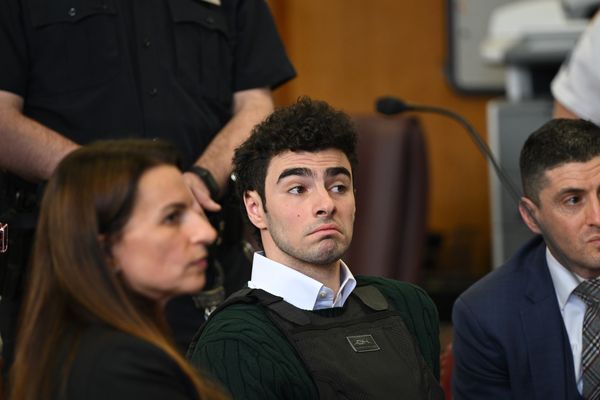
“Say nothing, she’s going to use it,” my 13-year-old daughter said to my 15-year-old son, like a Miranda warning. It was the week after the novelist Hanif Kureishi had tweeted: “I’ve had some great cocaine nights with my children, and I know friends who take MDMA with their kids, though this isn’t something I would do, out of the fear of talking too much.”
Before I even considered too deeply whether I’d ever take drugs with my kids – obviously this is a purely hypothetical, what-if question – it seemed useful to know whether they’d ever take drugs with me. Even though they said nothing, in case I used it, I knew the answer would be no. They’re very anti-drugs, for which I blame/thank the school.
There are some areas of parenting that pit one sacred rule against another, and render it impossible to obey both: drug-taking is one. I take honesty and openness pretty seriously, because it corrupts if you lie to your children; it role-models mendacity, and opens up the possibility that there are secrets so dark that you, the putative authority, have to hide, which leaves who in charge, exactly? And yet at the same time, obviously, my first and overwhelming priority is that they remain alive and, in an ideal world, sane, so I would never want to normalise high-risk behaviours, create mini-adventurers who’ll try anything once, even if they have no idea what’s in the anything.
Unfortunately, to square these imperatives, I’d have to go back in time and be a completely different teenager. The thing that freaks me out about the condition of youth, having such a keen interest in the aforementioned remaining alive, is not the stupid things I might have done in the 80s, but the way we reacted when things went wrong. Terrible, life-changing things happened to people I knew, especially on LSD – third-degree burns, psychotic episodes – and far from seeing any of that as a deterrent, I took a kind of idiotic, trenches attitude that if that bullet had the name of someone I knew on it, it was now statistically less likely for any bullets to have mine.
It would be unrealistic, in other words, to take the path of moralising and “Just say no”. The path I’ve landed on instead – volunteer nothing, answer a direct question truthfully, make everything sound very expensive and confusing, amp up the nausea – is rockier and I don’t know yet how it’ll play out. At the moment, the kids don’t even vape, which according to the tabloids makes them the last two non-vaping teenagers in the country.
Taking drugs with your kids is the same tension between openness and protectiveness, writ larger, with a second question bolted on: what’s the drug? Obviously, we’re assuming by now that they’re adults – I mean, it’s all illegal anyway, but taking drugs with children shoots way past legality into abuse. If the aphorism is, “First they idolise you, then they see through you, then they forgive you,” now that they’re adults, with luck, they’re well into forgiveness. This should mean questions like, “Are you an authority figure to them, and are you torching that authority to their detriment by trying to be their friend?” are probably in the past.
I’d find it hard to get aerated about people who’d smoke dope with their kids. I’d wonder who on earth would want their children to see their coked-up personality. I can see Kureishi’s point that MDMA is like a truth serum, so certainly best to avoid if you wouldn’t take one of those en famille. Boomers and generation X don’t really understand ketamine, so that would have to be the kids’ idea. I know drug technology has moved on a lot, but I still cannot in a million years imagine taking LSD with your treasured offspring, not least because it would result in intense anxiety about what you’d just done to their psychic ecosystem.
This is all probably a moot point anyway. The generations seem to be getting more clean-living and puritanical as time goes on. By the time gen Z are all fully of age, they won’t even join us for a beer.
Zoe Williams is a Guardian columnist
Do you have an opinion on the issues raised in this article? If you would like to submit a response of up to 300 words by email to be considered for publication in our letters section, please click here.







